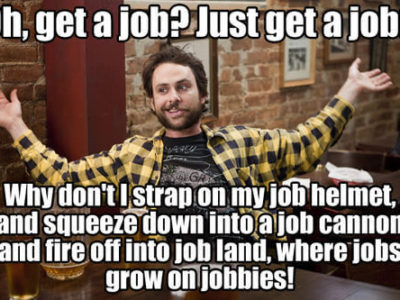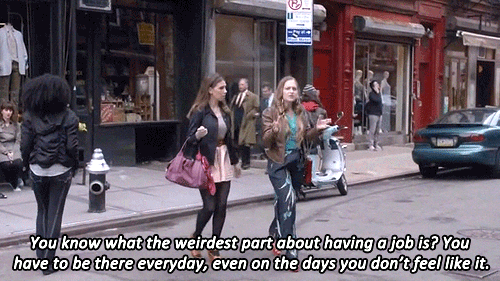Getting a job on-campus ain’t for sissies. Neither is being a good worker while being a good student, friend, hockey fan, binge drinker, etc. But a busy schedule isn’t the only thing than can prevent you from shining at your on-campus job. A few Boston College employers offered their advice on how to stand out among other students trying to get – and keep – a job on campus.
Email… everyone.
I think most students fear over-emailing so we attempt to send one Hail Mary to the person who seems most in-charge. But Michael Rodriguez, Manager of BC Catering Services, actually suggested adding multiple email addresses in an attempt to reach people who are in and out of the office throughout the week. For a job at catering, he recommended sending an email to himself, the other assistant manager and a more generic email to the catering services account. The more, the merrier! Who knew?
Sneak in the buzz word “Availability.”
For that first email, Rodriguez emphasizes brevity. “A lot of times students will ramble and try to sell themselves… but the biggest things we look for are availability and flexibility,” he explained. Caitriona Taylor, BC Director of Campus Recreation, agreed that availability is key. “Usually when we’re hiring, we are hiring for the seniors that have graduated or someone that’s gone abroad, so we already know potentially what hours you’re going to fill. It’s always important to work nights, early mornings, weekends,” she said.
Be a big show off.
Your resume should not only highlight the duties each job entailed but what accomplishments you made under that position. Jason McClellan, BC Event Management Director, said, “Part of my job is doing the budget. Okay, so I did the budget but what did I accomplish? You know… maybe I beat our revenue target for the year by 10 percent.” Pretend like you’re talking to your mom on the phone and pack your resume with your achievements.
Not a lot of experience? Never fear.
You don’t need a ton of experience to land a job on-campus. Most employers understand that students are trying to get experience on their resume (and a few extra dollars). Want a catering job? Rodriguez advised highlighting any kind of hospitality or retail experience. “Anything where you’re used to dealing with people,” he said. Anything means anything. Don’t overlook experiences like being a lifeguard at your local pool or president of your high school recycling club when fleshing out your resume.
Put on your game face.
Most employers hope that people skills will surface during an interview. Remember employers can’t engage your resume in dialogue. Caitriona Taylor acknowledged mannerism as a big factor she looks for in interviews. “Are they respectful, attentive, and able to answer the questions? How do they interact with others before and after the interviews?” McClellan added, “It’s about answers to questions as well as the questions that the student asks me… because that will give me a gauge of interest.” Plus, an ability to interact during an interview will translate well into how you manage customers.
Follow up, and then follow up MORE.

Yes, follow up with questions during the interview. But the interview shouldn’t be the end of the conversation. McClellan encourages sending over a thank-you note. For the brave souls out there, a follow-up phone call works, too.
Don’t stop interacting.

Social interaction should constantly be on your mind, not only during the interview, but when you’re on the job– whether that means engaging with fellow peers at the dining hall or with your boss, his or her assistant and other department heads. McClellan said, “I think it’s important that the person…be able to interact with every level of people here. As much as an employee has to learn, that same employee has an ability to teach the rest of us something too.”
If you’re not available, get flexible.

So maybe your availability isn’t great. Get flexible. All three employers highlighted willingness to work extra hours as as a major factor in standing out among other employees. Taylor said, “Being willing to start as a [substitute] – meaning, you won’t get the shifts you want– being okay with that and picking up shifts is really important.”
Dress for the job, not for the school day.

Leggings are amazing, ladies, don’t get me wrong. I’ve committed the crime of rolling straight out of bed, putting on a jacket, and heading right to class many a time. Unfortunately, real pants are a requirement at every job. Rodriguez goes one step further. “Students need irons. Get an iron for any job,” he said. Curse him for sounding so much like your mother.
Get real with yourself. And your Employer.
Be honest about how much time you can devote to the job. Rodriguez said, “I think being realistic about your schedule is really important. If you can’t have a job, that’s fine. But if you want a job, you’re going to have to put in 10-15 hours a week.”
Don’t half-ass it.
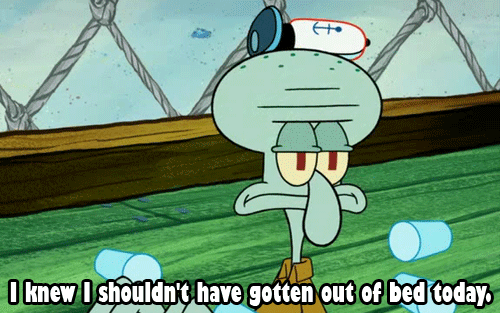
I don’t know about you but I nearly choked on the “10-15 hours” bit (does he understand the value of 10 to 15 hours in Netflix time?) But Rodriguez tailored his statement: “I’d rather have someone work really well once a week than give me half of what they have four times a week. Give us what you can and do it well. Just to show up and be a body really isn’t helpful.” Taylor also emphasized the importance of attitude. She mentioned that students who really stand out are the ones who are smiling and engaging at the gym’s front desk at 6 a.m.
Why stand out at your job? Maybe you’re just a college student looking to add to your alcohol fund. But (maybe unfortunately) your college job is a valuable resource for the future as well as the present.
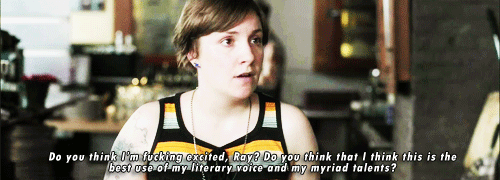
Referring to his department, McClellan said, “There’s well over 120 years of experience in this office, so there’s a lot to learn… Now, for students looking for their career, you’re going to build relationships with the people you work on campus with and those relationships may have contacts.” I hope it’s not just me that’s thinking I need to step up my game at work.

